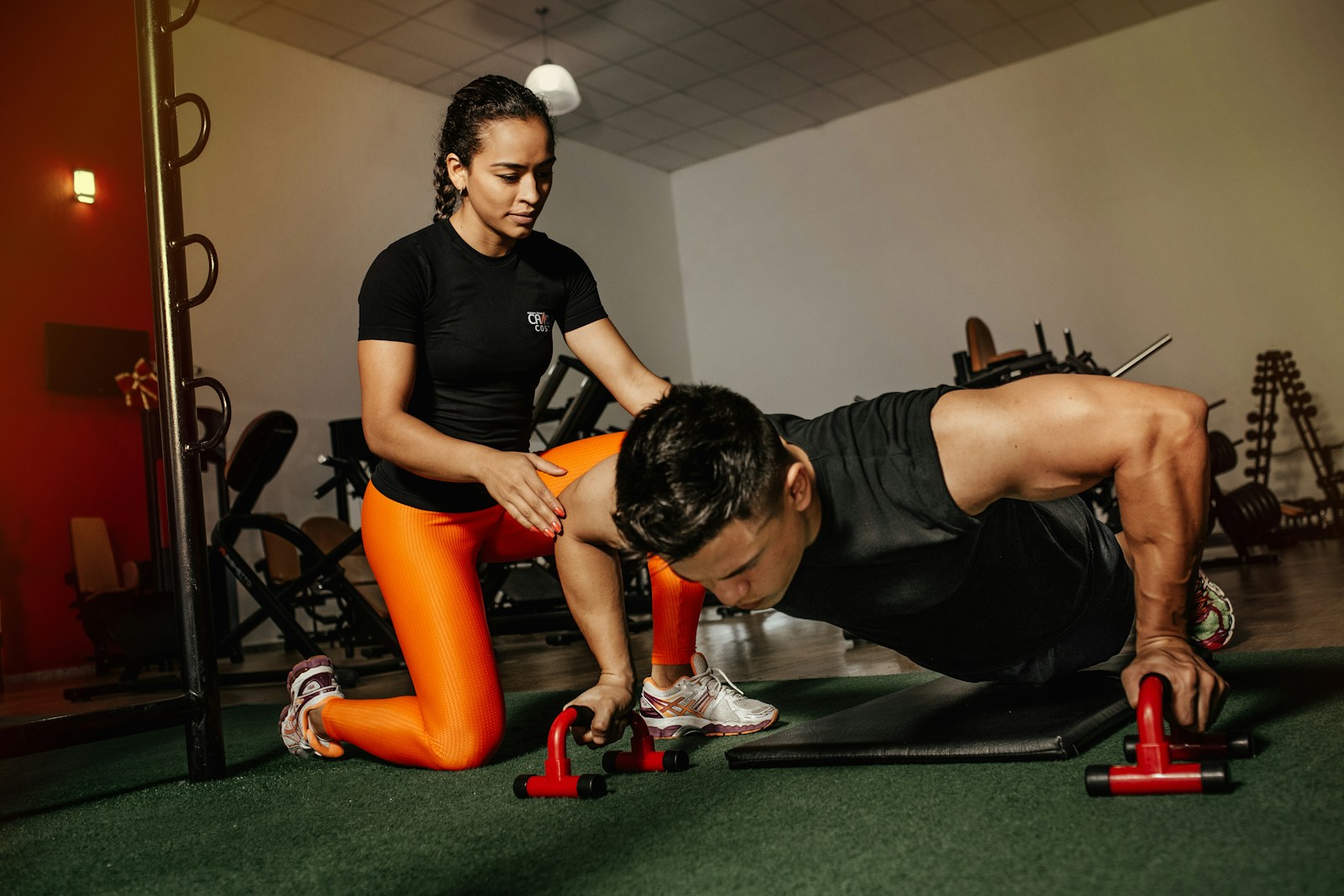Choosing the right personal trainer can make a significant difference in your fitness journey. A good trainer not only guides you through workouts but also provides motivation, accountability, and expert advice tailored to your individual needs. However, with so many trainers out there, it can be challenging to know what to look for. Here’s a guide to help you identify the key qualities and qualifications to consider when selecting a personal trainer.
Look for Proper Certification and Credentials
One of the first things to check when looking for a personal trainer is their certification and credentials. A qualified trainer should have certification from a reputable organization, such as the National Academy of Sports Medicine (NASM), the American Council on Exercise (ACE), or the National Strength and Conditioning Association (NSCA). These certifications indicate that the trainer has undergone rigorous training and testing to ensure they have the necessary knowledge and skills.
It’s also worth checking if the trainer has additional certifications or specializations, such as in nutrition, strength training, or rehabilitation. These qualifications can provide added value, especially if you have specific fitness goals or needs.
Consider Experience and Expertise
Experience is another crucial factor when choosing a personal trainer. An experienced trainer is more likely to have encountered a wide range of clients and fitness levels, which means they’ll be better equipped to tailor workouts to your specific needs. Ask about their experience working with clients who have similar goals to yours, whether that’s weight loss, muscle gain, improving athletic performance, or recovering from an injury.
In addition to general experience, consider the trainer’s expertise in the type of training you’re interested in. For example, if you’re looking to improve your running performance, a trainer with a background in endurance sports might be a better fit than someone who specializes in bodybuilding.
Assess Their Communication and Teaching Style
Effective communication is key to a successful trainer-client relationship. A good personal trainer should be able to explain exercises clearly, provide constructive feedback, and motivate you in a way that resonates with you. During your initial consultation or trial session, pay attention to how the trainer communicates. Do they listen to your concerns and goals? Are they patient and encouraging?
It’s also important to consider the trainer’s teaching style. Some people prefer a more hands-on approach, where the trainer demonstrates exercises and offers frequent corrections, while others might prefer a more hands-off style, where the trainer provides guidance but allows for more independence. Finding a trainer whose style matches your learning preferences can make your sessions more enjoyable and effective.
Look for a Trainer Who Prioritizes Safety
Safety should always be a top priority in any fitness program. A good personal trainer will emphasize proper form and technique to prevent injuries. They should also be knowledgeable about modifying exercises to accommodate any physical limitations or medical conditions you may have.
During your initial sessions, observe how the trainer addresses safety. Are they attentive to your form and quick to correct any mistakes? Do they take the time to explain the reasons behind each exercise and how it benefits your body? A trainer who prioritizes safety will help you progress without putting your health at risk.
Evaluate Their Availability and Flexibility
Consistency is key to achieving your fitness goals, so it’s important to find a trainer whose schedule aligns with yours. Ask about their availability and whether they can accommodate your preferred workout times. Some trainers may have a full client roster and limited flexibility, so it’s essential to find someone who can consistently meet with you at times that work for both of you.
In addition to scheduling, consider the trainer’s flexibility in terms of workout locations. Some trainers may only work in specific gyms, while others might offer in-home training or sessions in outdoor spaces. If you have a preference for where you’d like to work out, make sure the trainer can accommodate that.
Assess Their Personality and Compatibility
Personality plays a significant role in the success of a trainer-client relationship. You’ll likely be spending a lot of time with your trainer, so it’s important to choose someone you feel comfortable with and enjoy being around. Think about the type of personality that motivates you—do you prefer someone who is energetic and upbeat, or someone who is calm and focused?
During your initial interactions, consider whether you feel a good rapport with the trainer. Do they make you feel at ease? Are they encouraging and positive? Compatibility in personality can make your training sessions more enjoyable and keep you motivated to stick with your program.
Consider Their Approach to Goal Setting and Progress Tracking
A good personal trainer will work with you to set realistic, achievable goals and track your progress over time. During your initial consultation, ask how the trainer approaches goal setting and what methods they use to monitor progress. Some trainers may use assessments, such as body measurements or fitness tests, while others may track performance improvements over time.
It’s also important that the trainer is open to adjusting your goals and training plan as needed. Fitness journeys are dynamic, and your needs and goals may change over time. A trainer who is flexible and willing to adapt your program to your evolving needs will help you stay on track and continue making progress.
Look for Testimonials and References
Finally, don’t underestimate the value of testimonials and references. Hearing from other clients about their experiences with a trainer can provide valuable insights into what you can expect. Look for reviews on the trainer’s website, social media pages, or third-party platforms. If possible, ask the trainer for references from current or past clients who had similar goals to yours.
Positive testimonials and references can give you confidence that the trainer has a proven track record of helping clients achieve their fitness goals. They can also provide additional context about the trainer’s style, approach, and effectiveness.
Conclusion
Choosing the right personal trainer is a crucial step in your fitness journey. By considering factors such as certification, experience, communication style, and personality, you can find a trainer who not only helps you achieve your goals but also makes the process enjoyable and motivating. Remember, the right trainer will prioritize your safety, tailor workouts to your needs, and provide the support and guidance you need to succeed. Take the time to find someone who is a good fit for you, and you’ll be well on your way to reaching your fitness goals.
Tags: personal trainer, fitness goals, workout safety, fitness coaching, choosing a trainer





